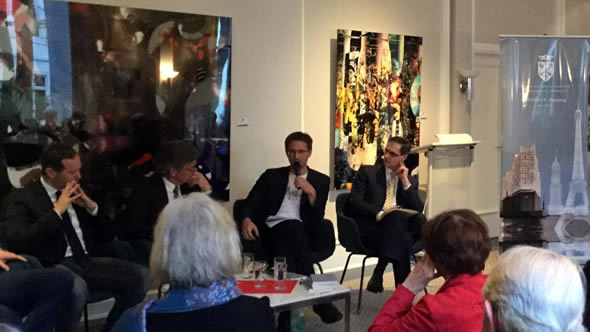Hamburg – ESI at public debate on the links between terrorism and the refugee crisis

ESI's Gerald Knaus participated in a public debate on Islamic terrorism, threats and threat perceptions, the French state of emergency and why Germany is different, and links between terror and the refugee crisis. The debate in Hamburg was organised by Cluny, an association for French-German friendship.
Gerald pointed out that terror was obviously linked to the refugee crisis. There were – according to the Global Terrorism Database – some 108,000 victims of terror in the world between 2001 and 2014: 43,000 in Iraq, 17,000 in Afghanistan, 420 in Western Europe (of which almost half in Madrid in 2004).
The link between refugees and terrorism therefore is this: refugees flee regions of terror to reach the safest continent on earth today, Western Europe. And they mostly flee the most deadly form of terrorism: state terrorism, whether by ISIS or (even more deadly) by the Syrian government – reminding us that the origin of the word terror in modern politics was linked to state repression in 1793 Jacobin France. And that tens of millions of terror victims were the victims of states such as Germany under Hitler, the Soviet Union under Stalin, China under Mao, or Cambodia under Pol Pot.
On the other hand, for acceptance of refugees to be sustainable, it has to be orderly. It has to coincide with control of borders; otherwise publics will flock to those ready to give up on liberal values in exchange for false promises of total security.
The challenge for European leaders and institutions today do is to achieve both: control and compassion, and policies that actually work.
Participants:
- Serge Lavroff, French General Consul in Hamburg and Director of the Institut Français
- Torsten Voß, Head of the Hamburg State Office for the Protection of the Constitution
- Gerald Knaus, ESI Chairman
- Mathias Ulmann, policy advisor in France
The event was moderated by Norbert Kremeyer, chairman of Cluny.
